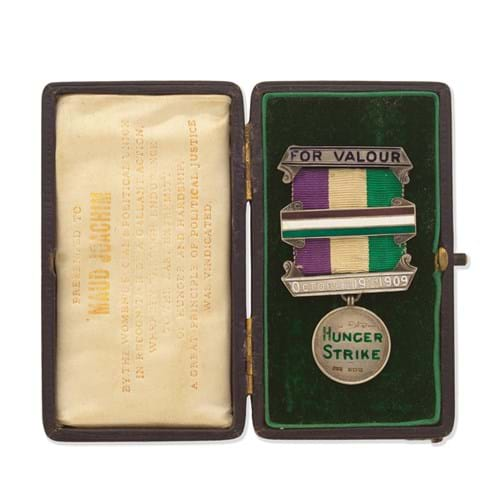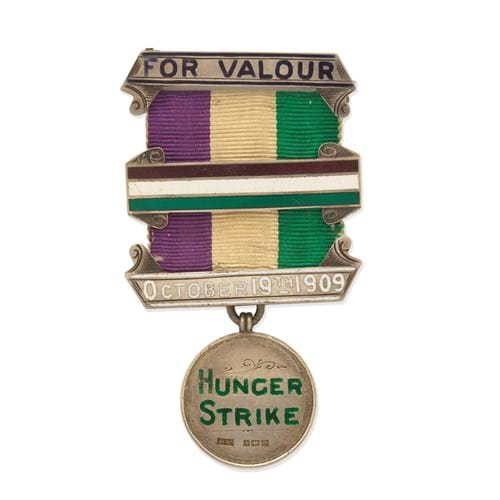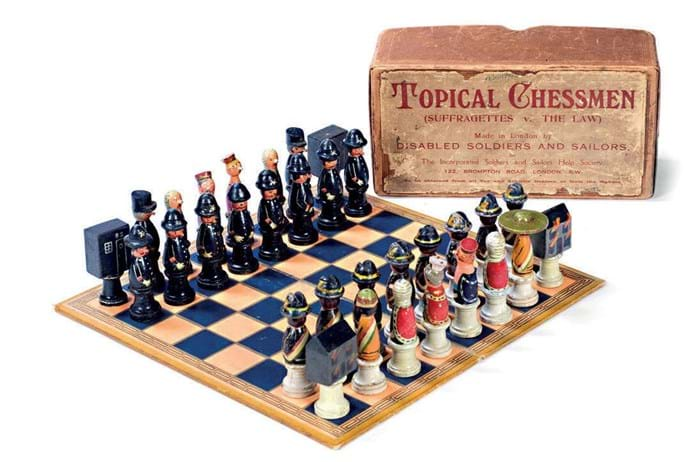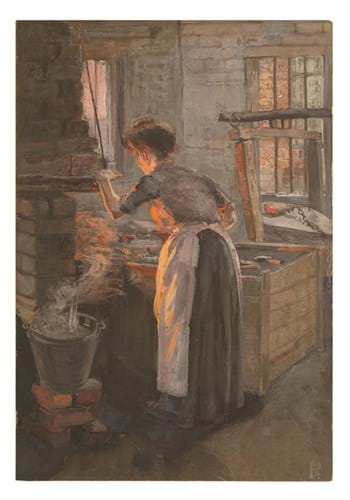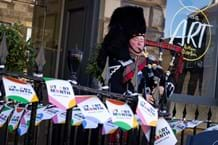The hunger strike medal was awarded by the Women’s Social and Political Union (WSPU) to Maud Joachim in 1909.
The medal came to auction as part of a 109-lot group of Suffragette memorabilia that had been amassed by collector Lesley Mees since the 1980s. It was hammered down at £32,500 or £41,600 including buyer’s premium at the Bonhams online auction.
The library’s digital and marketing officer Naomi Brown said: “We're thrilled to have secured the Maud Joachim hunger strike medal at auction. This was made possible by a grant from the Scottish Government’s National Fund for Acquisitions and an incredible £28,000 raised in individual donations from 500 people from around the world. We are over the moon and still a little in shock. Thank you to everyone!”
Maud Joachim (1869-1947) was the niece of Joseph Joachim, the violinist and composer. She allied herself with the radical wing of the suffrage movement by joining the WSPU in 1907 and was first arrested in February 1908 after taking part in the ‘pantechnicon raid’ on the House of Commons, leading to six week’s imprisonment. She spent another three months in jail after taking part in the deputation from Caxton Hall to the House of Commons on June 30, 1908.
In October 1909 she was arrested in Dundee and during her subsequent stay in prison she became the first to undergo a hunger strike in Scotland. Over the next few years she was in and out of prison including on March 1912 when she was sentenced to six months. She subsequently went on hunger strike again and was forcibly fed for two days before being released.
Other highlights from The Votes for Women The Lesley Mees Collection included a Suffragette chess set which took a hammer price of £30,000 (plus 28% buyer's premium), against an estimate of £3000-5000.
Topical Chessmen (Suffragettes v The Law) features prison guards and society women instead of knights, while burning buildings and prison cells are the rooks, and policemen and Suffragettes face each other as the pawns.
The set was made in London by disabled soldiers and sailors for The Incorporated Soldiers and Sailors Help Society. This organisation was founded in 1899 during the South African War by Lord Roberts, who set up commercial workshops that employed disabled ex-servicemen.
The top lot of the sale was a picture by Sylvia Pankhurst (1882-1960) which took a hammer price of £37,500 (plus 28% buyer's premium). The unframed gouache on board titled The Chainmaker from 1907 was sold with a copy of London magazine from November 1908, in which it was first illustrated.


